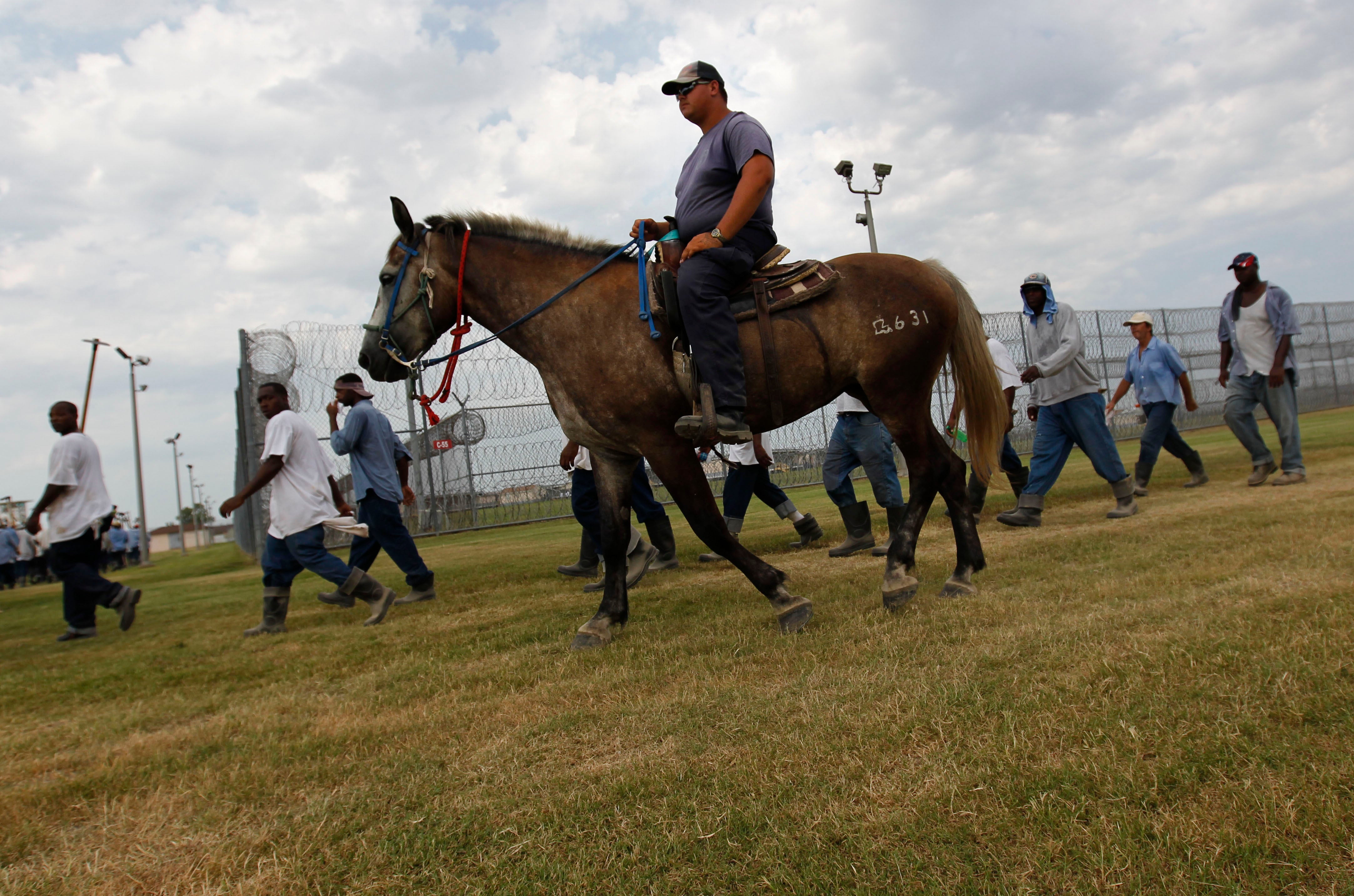Louisiana prisoner suit claims they’re forced to endure dangerous conditions at Angola prison farm
Prisoners at the Louisiana State Penitentiary have filed a class-action lawsuit over conditions at the prison's farm

Your support helps us to tell the story
From reproductive rights to climate change to Big Tech, The Independent is on the ground when the story is developing. Whether it's investigating the financials of Elon Musk's pro-Trump PAC or producing our latest documentary, 'The A Word', which shines a light on the American women fighting for reproductive rights, we know how important it is to parse out the facts from the messaging.
At such a critical moment in US history, we need reporters on the ground. Your donation allows us to keep sending journalists to speak to both sides of the story.
The Independent is trusted by Americans across the entire political spectrum. And unlike many other quality news outlets, we choose not to lock Americans out of our reporting and analysis with paywalls. We believe quality journalism should be available to everyone, paid for by those who can afford it.
Your support makes all the difference.Men incarcerated at Louisiana State Penitentiary filed a class-action lawsuit Saturday, contending they have been forced to work in the prison’s fields for little or no pay, even when temperatures soar past 100 degrees. They described the conditions as cruel, degrading and often dangerous.
The men, most of whom are Black, work on the farm of the 18,000-acre maximum-security prison known as Angola -- the site of a former slave plantation -- hoeing, weeding and picking crops by hand, often surrounded by armed guards, the suit said. If they refuse to work or fail to meet quotas, they can be sent to solitary confinement or otherwise punished, according to disciplinary guidelines.
“This labor serves no legitimate penological or institutional purpose,” the suit said. “It’s purely punitive, designed to ‘break’ incarcerated men and ensure their submission.”
It names as defendants Angola’s warden, Timothy Hooper, and officials with Louisiana’s department of corrections and its money-making arm, Prison Enterprises.
A spokesman for the department of correction and an attorney for the department did not immediately provide comment on the suit.
The United States has historically locked up more people than any other country, with more than 2.2 million inmates in federal and state prisons, jails and detention centers. They can be forced to work because the 13th Amendment to the U.S. Constitution, which abolished slavery after the Civil War, made an exception for those “duly convicted” of a crime.
The plaintiffs include four men who formerly or are currently working in the fields, along with Voice of the Experienced, an organization made up of current and formerly incarcerated people, around 150 of whom are still at Angola.
The suit said the work is especially dangerous for those with disabilities or health conditions in the summer months, with temperatures reaching up to 102 degrees in June, with heat indexes of up to 145.
Some of the plaintiffs have not been given the accommodations and services they are entitled to under the Americans with Disabilities Act, it said.
These men are forced to work “notwithstanding their increased risk of illness or injury,” the suit said.
It asserts the field work also violates their 8th Amendment rights to be free of cruel and unusual punishment, and that some plaintiffs in the suit were sentenced by non-unanimous juries and therefore were not “duly convicted” within the meaning of the 13th Amendment.
The men — represented by the legal advocacy organizations Promise of Justice Initiative and Rights Behind Bars — are asking the court to declare that work they are forced to do is unconstitutional and to require the state to end its generations-long practice of compulsory agricultural labor.